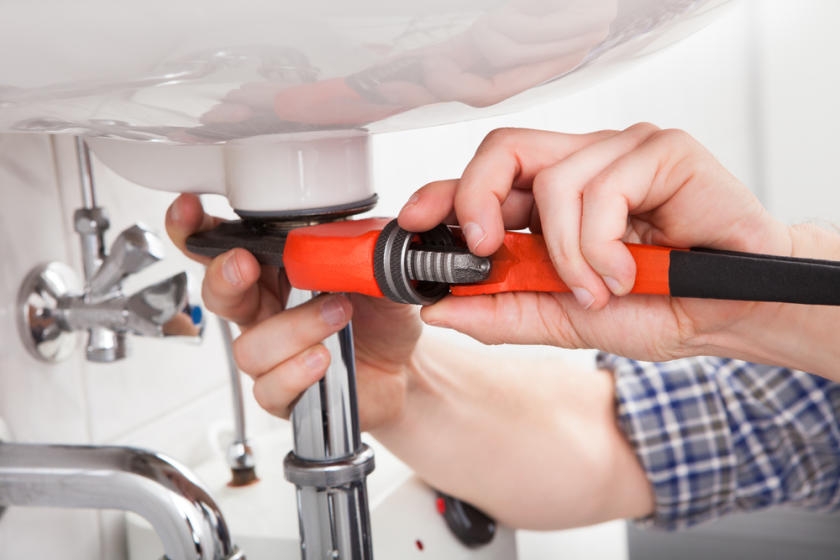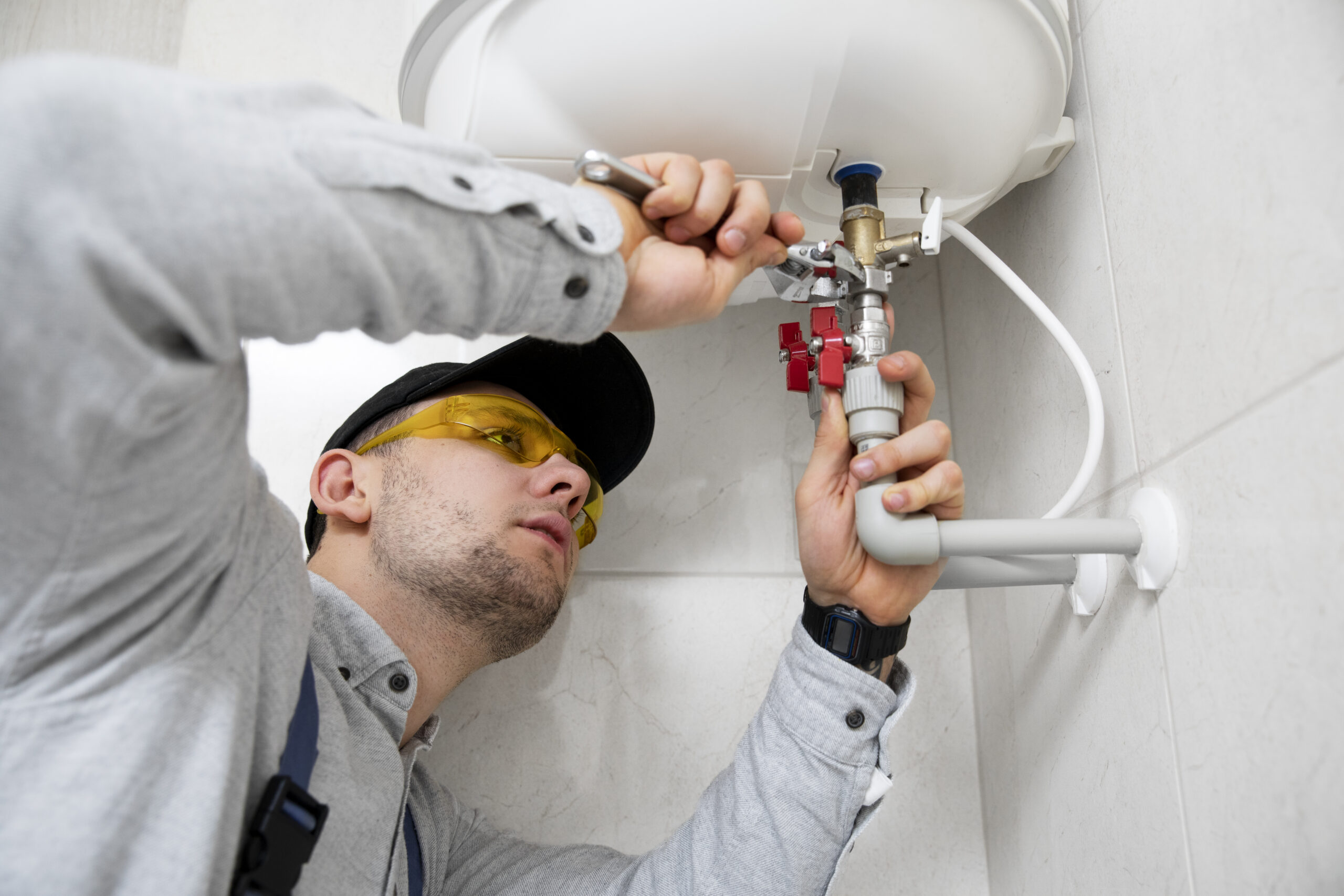Immediate Tips for Critical Situations Until Support Arrives
Immediate Tips for Critical Situations Until Support Arrives
Blog Article
Everybody has got their own individual theory on the subject of Expert Tips for Emergency Plumbing Repairs.

Plumbing emergencies can strike at any time, causing stress and anxiety and prospective damage to your home. Whether it's a ruptured pipeline, a blocked drain, or a dripping faucet, understanding how to manage the scenario till an expert plumbing technician gets here can save you from further difficulties. This write-up supplies vital emergency pipes ideas to help you mitigate damages and gain back control during a pipes dilemma.
Turn Off the Water Supply
The very first step in any type of plumbing emergency situation is to turn off the water. For localized issues, such as a dripping faucet or toilet, shut off the valve near the component. When it comes to a major leakage or burst pipe, situate your home's main water shut-off shutoff and turn it off quickly. Understanding the area of these shutoffs beforehand can save valuable time throughout an emergency situation.
Address Little Leaks with Short-lived Fixes
Tiny leaks can promptly come to be significant troubles if left unattended. Make use of these short-term solutions until specialist help gets here:
While these repairs aren't irreversible, they can help lessen water loss and damage.
Unclog Drains Securely
A blocked drainpipe can be a frustrating and untidy concern. Here's exactly how to tackle it:
If these approaches do not work, avoid utilizing too much pressure, as it may intensify the obstruction.
Take Care Of Overflowing Toilets
An overruning toilet can cause instant turmoil. Below's what you should do:
Shut down Your Hot Water Heater
In particular emergency situations, such as a ruptured pipeline, it's important to shut down your hot water heater. This protects against getting too hot or damage to the system when water stops flowing. Turn off the power supply to the water heater (electric or gas) and let it cool to stay clear of possible threats.
Momentarily Quit a Ruptured Pipe
A burst pipe can lead to substantial water damages in mins. To alleviate the problem:
Call a specialist plumbing technician instantly to resolve the trouble permanently.
Deal With Frozen Pipes Meticulously
In chillier climates, icy pipelines are a common emergency situation. If you believe a frozen pipe:
Protect against Additional Damage
Taking quick activity to lessen damage can save you money and time over time. Here's just how:
. Have an Emergency Plumbing Package
Prepare a standard plumbing emergency situation set to take care of minor concerns efficiently. Your package should consist of:
Having these devices on hand can make a considerable distinction in your ability to handle emergencies.
Know When to Call an Expert.
While quick fixes can aid momentarily, certain plumbing concerns require instant specialist focus. Call a plumbing if:.
Without delay speaking to a professional guarantees the problem is settled correctly and avoids additional difficulties.
Verdict.
Plumbing emergencies can be overwhelming, however with the ideal expertise and tools, you can manage the situation efficiently up until aid gets here. By switching off the water supply, addressing tiny leakages, and making use of temporary fixes, you can reduce damage and keep your home safe. Keep in mind, these ideas are momentary options; constantly get in touch with a qualified plumbing professional to take care of the origin of the trouble. Prep work and fast reasoning are your ideal allies in any kind of pipes emergency situation.
Expert Tips for Emergency Plumbing Repairs
Plumbing emergencies can be incredibly stressful and inconvenient. Whether it’s a burst pipe, a clogged drain, or a leaky faucet, these common plumbing emergencies need immediate attention to prevent further damage to your home. But before you panic, it’s important to understand the basics of plumbing repairs and the steps you can take to address these emergencies. In this article, we will share some expert tips to help you navigate through these situations and minimize potential water damage.
Identifying Common Plumbing Emergencies
Leaky pipes and faucets Clogged drains and toilets Burst pipes Low water pressure Water heater problems Essential Tools for Plumbing Repairs
Plunger: Useful for unclogging toilets and drains Adjustable wrench: Needed for tightening or loosening nuts and bolts Pipe wrench: Ideal for gripping and turning pipes Tape measure: Necessary for accurate pipe measurements Plumber’s tape: Helps create watertight seals Understanding Emergency Plumbing Services
Emergency plumbing services are designed to provide immediate assistance for unexpected plumbing issues that can cause significant damage to your home, business, or health. These services are typically available 24/7 and are staffed by experienced plumbers who can quickly diagnose and repair a wide range of plumbing problems.
When a plumbing emergency strikes, time is of the essence. Whether it’s a burst pipe flooding your basement or a gas leak posing a serious risk, emergency plumbing services ensure that help is just a phone call away. These professionals are equipped with the tools and expertise to handle any situation, minimizing damage and restoring your plumbing system to proper working order.
What Constitutes a Plumbing Emergency?
Burst pipes or water supply lines: These can cause extensive water damage and need immediate repair to prevent flooding. Gas leaks or suspected gas leaks: Gas leaks are extremely dangerous and require prompt attention to avoid potential explosions or health hazards. Sewer backups or overflows: These can lead to unsanitary conditions and significant property damage. Clogged drains or toilets causing water to overflow: Overflowing water can damage floors, walls, and other structures. Leaks or water damage causing structural damage: Persistent leaks can weaken the structural integrity of your home or business. No hot water or heating: A lack of hot water can be more than an inconvenience, especially in colder months. Common Causes of Plumbing Emergencies
Aging or corroded pipes: Over time, pipes can deteriorate, leading to leaks or bursts. Improperly installed or maintained plumbing fixtures: Faulty installations or lack of maintenance can result in unexpected failures. Tree roots or other debris infiltrating your sewer line: Roots can grow into pipes, causing blockages and backups. Frozen pipes or water supply lines: In colder climates, pipes can freeze and burst, leading to significant water damage. High water pressure or sudden changes in water pressure: Excessive pressure can strain pipes and fixtures, causing them to fail. Natural disasters such as floods or earthquakes: These events can disrupt your plumbing system and cause severe damage. Steps to Minimize Water Damage
Locate the water shut-off valve: Knowing where the valve is can help you quickly cut off the water supply to the affected area. Turn off the water heater: If there’s a risk of water coming into contact with the heating element, make sure to turn off the water heater to avoid potential accidents. Open faucets and drain pipes: By opening faucets and drain pipes, you can relieve pressure and empty any standing water. Collect and contain water: Use towels, buckets, or bins to collect water and prevent it from spreading to other areas of your home. https://leecountyplumbingandwellservice.com/expert-tips-for-emergency-plumbing-repairs/

I'm certainly very focused on Plumbing Emergencies: Tips on What To Do Before and I'm hoping you liked the blog posting. Those who enjoyed our blog posting plz be sure to share it. Thanks for being here. Come back soon.
Start Now Report this page